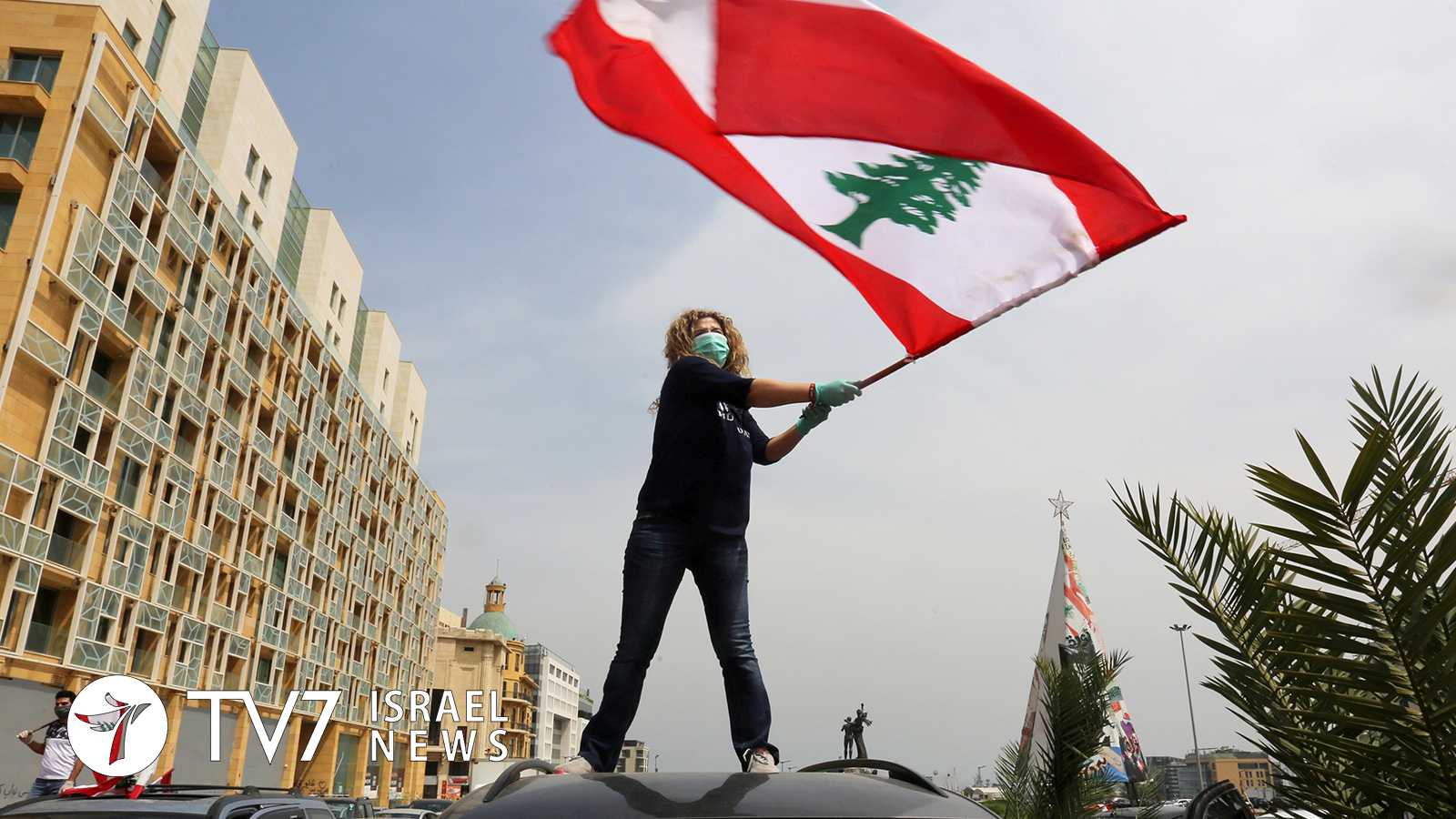Dozens of protesters flocked back onto Lebanon’s streets to express fury over deteriorating living conditions exacerbated since the government-imposed lockdown measures to combat the spread of the coronavirus. The pandemic has compounded woes for many who had already been contending with rising poverty and hardship after the country was plunged deep into financial crisis months before. Citizens have seen the value of their savings tumbling, a tanking currency, painful price hikes and job losses.
Demonstrators wearing protective masks and gloves gathered in Beirut’s central Martyr’s Square, as a convoy of cars and motorcycles rolled past. Drivers honked their horns and waved the national flag out of the windows or from on top of their vehicles. Many shouted the word “Revolution” in Arabic.
Others gathered outside their vehicles to shout angry slogans at Members of Parliament, who met for the first time since the outbreak of the coronavirus. Internal security forces clad in protective gear were deployed to monitor the protesters.
Lebanon’s Health Ministry is reporting that the number of infections stands at 682, with 22 deaths.
Activist Ali Hadar told Reuters that he and the other demonstrators “are here to say that, amid corona(virus) and amid the economic crisis, the state left us with two choices: We either die from hunger or die from the disease.” He further stressed that, “since it is death anyway – let us die while standing up at least and taking a stand.”
Another demonstrator, Nour Bassam said that even though there was concern and people exercised “precautions” against contracting the highly contagious disease, that they could simply not remain at home because “the situation cannot wait, we should speak up” and “make a statement.”
People also flocked to the streets in other parts of Lebanon, in the resumption of protests that had waned somewhat in recent months after shaking the country since October. Men and women popped out of their car windows in Tripoli, waving Lebanese flags and protesting in their vehicles to maintain physical distance.
Others marched through the northern city while chanting or gathered in the main square, under the wary eyes of Lebanese soldiers. They waved banners reading “Hunger, Hunger, Hunger pushed people to face coronavirus” or the word “Revolution” printed with the sign of a fist in the background.
Protester Michel Mahfouz said, “We are on the streets here since October 17, the Revolution – and we are still going on the streets. When the shutdown was announced, we all or some of us abided by it, but the hungry people could not comply with the shutdown because this is just illusionary plans on paper.”
Lebanon’s Hezbollah-dominated parliament began a three-day legislative session on Tuesday (April 21). The meeting had been relocated from the official parliament building to the UNESCO Palace in Beirut to allow for social distancing. The MPs complied with a series of preventive measures as they arrived to avoid the risk of COVID-19 contamination. Their temperatures were checked and disinfectant was sprayed on their legs by medical personnel in hazmat suits. Many wore face masks during media interviews.
MP Hassan Fadlallah said that it “is important for the Lebanese parliament to resume its legislative work given the coronavirus pandemic, which the Lebanese government has succeeded in combating and in mitigating its negative effects.” Emphasizing that the legislators “are facing an important mission,” he added, “hopefully, they will be able to fulfill the aspirations of the Lebanese people, especially as we are suffering from an acute financial economic crisis that needs legislation and laws.”
Parliament Speaker Nabih Berri opened the first session, during which several draft laws will be debated ranging from the proposed regulation of cannabis cultivation for medical use, a controversial amnesty, and a proposal to lift immunity from prosecution for government ministers.
